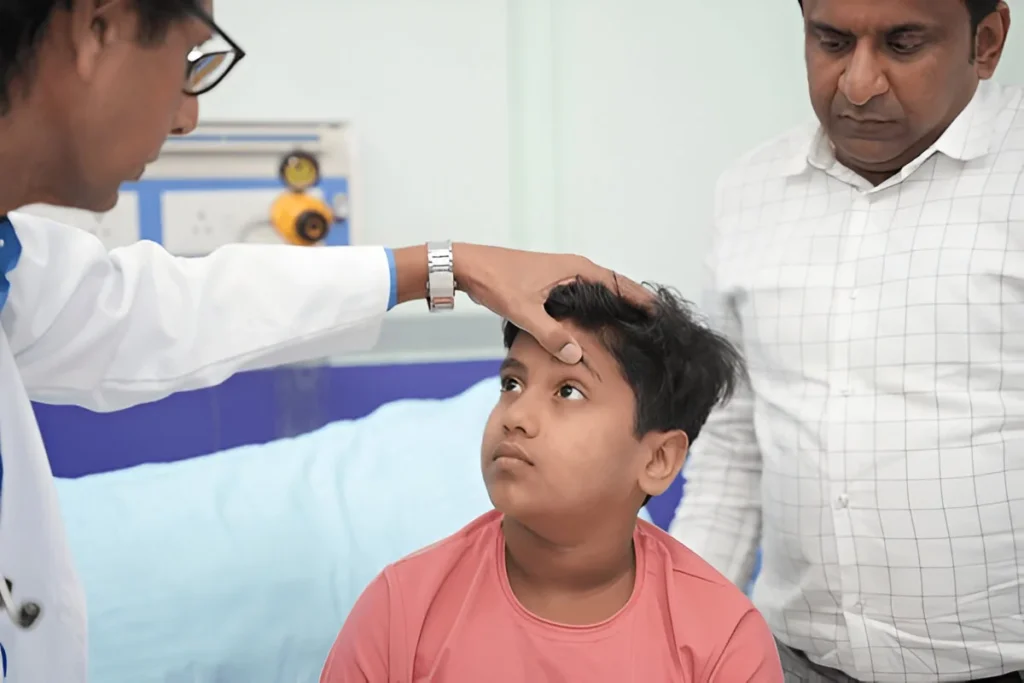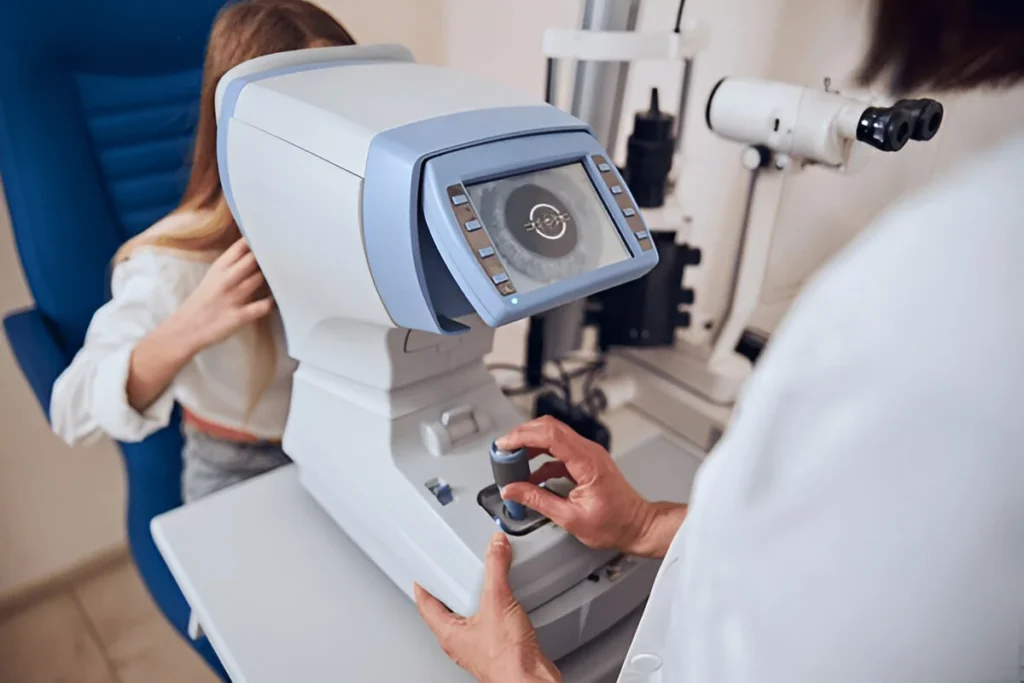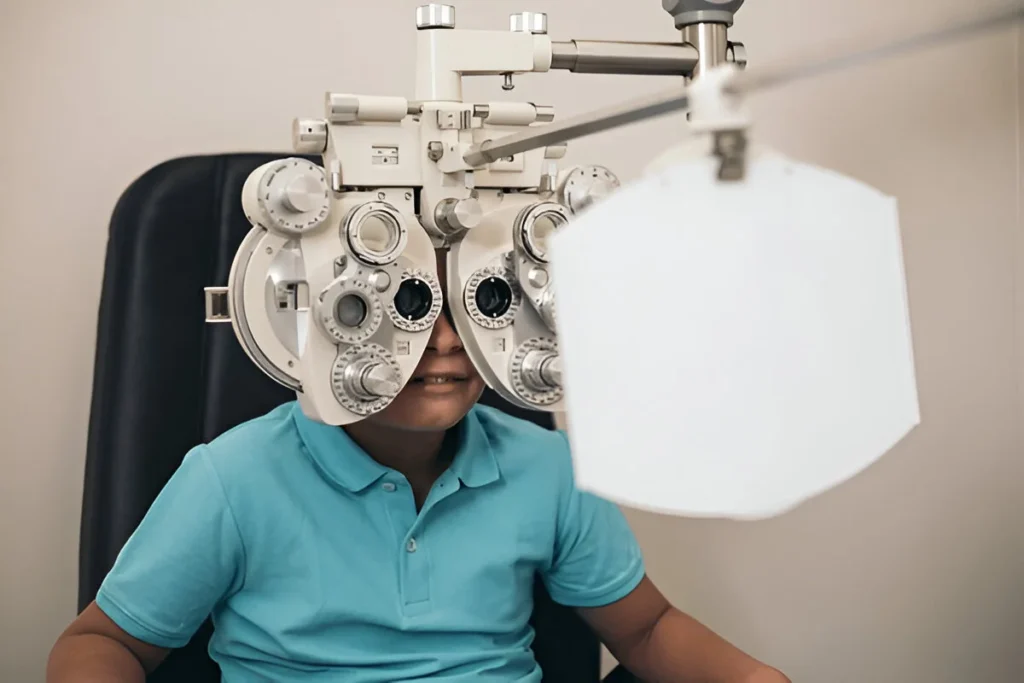Why early cataract surgery matters in children Learn from the Best Eye Surgeon in Kolkata how timely treatment saves vision and supports healthy growth
Understanding Childhood Cataracts
Cataracts are usually linked with aging, but they can also occur in infants and young children. When the natural lens of the eye becomes cloudy, it interferes with light passing through to the retina, leading to blurred vision. Unlike adults, children’s eyes and brains are still developing, which makes early detection and treatment critical.
Childhood cataracts may be:
- Congenital – present at birth due to genetic or developmental issues
- Developmental – appear later during growth due to illness, trauma, or other factors
When untreated, cataracts in children can cause amblyopia (lazy eye), permanent visual impairment, or delays in learning and development.

Why Early Cataract Surgery Matters in Children
Timely surgery is not just about restoring clarity of vision; it is about supporting healthy development.
Key reasons for early intervention:
- Prevents vision loss – Delaying surgery may lead to irreversible blindness.
- Boosts brain development – The brain learns to process visual signals better when clarity is restored early.
- Supports academic growth – Clearer vision helps children focus better in school and daily activities.
- Enhances quality of life – Children gain independence and confidence in movement and learning.
Medical research shows that performing surgery during the first few months or years of life can significantly improve long-term vision outcomes.
Signs Parents Should Not Ignore
Children may not always express that their vision is blurry. Parents and caregivers must stay alert to the following:
- White or gray spot visible in the pupil
- Unusual eye movements or misalignment
- Difficulty recognizing faces or objects
- Poor hand-eye coordination
- Extreme sensitivity to light
Recognizing these early warnings can make all the difference.

The Surgical Approach Explained
Childhood cataract surgery is different from adult surgery. Children’s eyes are more delicate, requiring specialized techniques and follow-up care.
The surgical process generally includes:
- Removal of the cloudy lens using microsurgical instruments
- Lens replacement with an intraocular lens (IOL) in most cases
- Postoperative therapy including eye drops and glasses or contact lenses for vision correction
Ongoing care is vital. Even after successful surgery, children may need vision therapy or patching to prevent lazy eye.
Best Practices After Surgery
Parents play a vital role in ensuring successful recovery.
- Follow medication schedules strictly
- Attend regular follow-up appointments
- Monitor for redness, swelling, or unusual discomfort
- Encourage activities that strengthen visual coordination
- Ensure the child wears prescribed glasses or protective eyewear
With proper care, children can adapt quickly and enjoy clear, stable vision.
The Role of Specialized Expertise
Not every surgeon is trained to handle pediatric cataracts. The delicate nature of a child’s eye requires advanced skill, experience, and understanding of pediatric eye health.
When looking for the Best Eye Surgeon, parents should consider:
- Specialization in pediatric ophthalmology
- Track record of successful surgeries in children
- Use of modern technology like microsurgical tools and pediatric IOLs
- Comprehensive post-surgery support including therapy and follow-up
This ensures the child receives safe, effective, and holistic care.
Benefits of Early Cataract Surgery in Children
Here are the key advantages explained in a simple list:
- Protects developing vision
- Reduces risk of permanent blindness
- Improves learning and school performance
- Enhances emotional well-being
- Increases confidence in everyday activities

Frequently Asked Questions
Q1. Can childhood cataracts be prevented?
Most childhood cataracts are genetic or developmental and cannot be fully prevented. However, regular eye checkups help in early detection.
Q2. At what age should cataract surgery be performed in children?
The timing depends on severity, but earlier intervention (often within months of diagnosis) provides the best outcomes.
Q3. Is cataract surgery safe for children?
Yes, when performed by specialists in pediatric ophthalmology, surgery is considered safe and effective.
Q4. Will children need glasses after surgery?
Yes, many children still need glasses or contact lenses for sharp vision after the cloudy lens is removed.
Q5. What happens if cataracts in children are left untreated?
Untreated cataracts can lead to permanent vision loss, lazy eye, or developmental delays.
A Unique Note in Conclusion
Early cataract surgery in children is not just a medical choice—it is an investment in their future. Acting quickly allows children to see the world with clarity, learn confidently, and grow without unnecessary barriers. With the guidance of the right expertise, parents can ensure that their child enjoys a lifetime of healthy vision.

